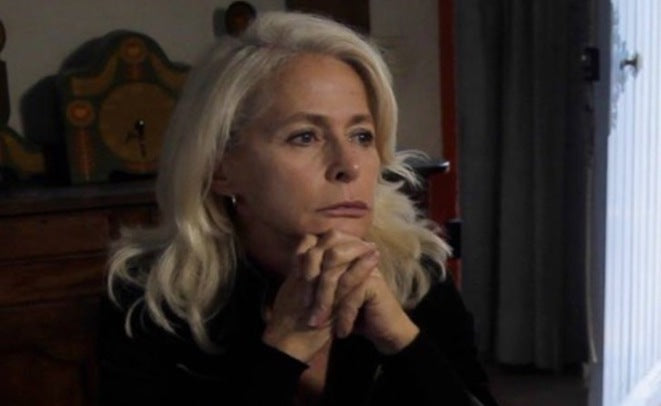Sophie Oudin-Bensaïd (1947-2018)
Sophie Oudin-Bensaïd died last week at the age of 71. In this article, Paul Alliès remembers Sophie as an ardent internationalist who tirelessly fought for her convictions up to the very end.

This article was first published in Médiapart on 24 November 2018. It has been translated from French by David Fernbach.
Sophie Oudin-Bensaïd died last week at the age of 71. For almost two years she fought a relentless cancer without ever giving in to it, and managed to retain the ‘proud figure and bearing’ that made people forget she was ill.
The description of Sophie’s ‘proud figure’ came from her partner Daniel, with whom she shared a whole life until his death almost nine years ago. Given the strength and radiance of his character, it was no mean feat for her to maintain the basic characteristics of a personality that was to the very end complete and impeccable.
Sophie’s intended career was the theatre, but she was suddenly projected on the stage of May 68. A member of the Communist League since that summer, she immediately established herself as an editor of the Taupe rouge paper that the Trotskyist organization sent its activists to distribute at the factory gates. She became a specialist in this, renowned for her efficiency, and one of the main organizers and editor of the Cahiers de la Taupe when the League decided to step up its intervention among the working class. Those who have had the opportunity to reread her articles today speak of their rich and compact character. This was no small achievement, bearing in mind the shortcuts and schematics of much of the far left at the time.
It went logically together with her revolutionary commitment that she was an early feminist activist, contributing assiduously to the Cahiers du Féminisme, a journal that sought for twenty years to establish and weave relationships between this half of the world and the workers’ movement.
This experience acquired through hard work paved the way for Sophie’s election to the central committee of the Revolutionary Communist League in 1976, in the so-called ‘Kollontaï promotion’, whose name alone clearly indicated the principled intention to promote new leaders.
It was also a logical development that she joined the editorial staff of Rouge (the LCR weekly), especially in its ‘activist’ (but oh, how creative!) phase when it became a daily during the two months (April and May) of the 1974 presidential campaign in support of Alain Krivine’s candidacy.
These positions, however, were not bureaucratic ranks in a conquest of power. Sophie made use of them in relationships that were particularly appreciated by the activists with whom she worked. Especially workers in the Clermont-Ferrand region, as well as those also of the Ligue of the Spanish state in their fight against Francoism. Spain would be the place where Sophie tested the internationalism that remained a cardinal value in her convictions.
These qualities were all fundamental to a personality that dazzled Daniel Bensaïd (the term is not too strong, as he explains in a beautiful passage in An Impatient Life [1] .After Daniel's death, Sophie became deeply invested in the construction and animation of a website dedicated to keeping alive his memory. One of her last undertakings was the reissue by Éditions Don Quixote in 2017 of the astonishing Jeanne, de guerre lasse, first published in 1991; a book ‘to console us for our disappointments, to pull us out of despondency or resignation’, as Edwy Plenel says in his preface.
And so, a fragment of history disappears with Sophie. By chance, on the very evening of her death an unusual concert was held at the Paris Philarmonie, devoted to ‘cosmic music’. Accompanied by satellite images of the planetarium in the Cité des Sciences, it opened with the beginning of ‘Thus Spoke Zarathustra’, Richard Strauss’s symphonic poem that remains associated with Stanley Kubrick’s 2001: A Space Odyssey. A film that Sophie and Daniel saw one fine evening in June 1972, the same evening that would see them consummate their union and ‘fly away into remote galaxies’ [2] (An Impatient Life, p. 113). Last week’s evening of music was entirely oriented towards what the composer Charles Koechlin called ‘distant horizons, infinite and unreal, mysterious night and brilliant triumphs of light’. It was also a poignant reminder of those deaths we have fought so hard against.
[1] Bensaïd, D (2015). An Impatient Life: A Memoir. London: Verso.
[2] Ibid., p. 113
Paul Alliès is Professor Emeritus at the University of Montpellier. Member of the National Council of the Parti socialiste. President of the Convention for the Sixth 6° Republic (C6R).
[book-strip index="1" style="display"]

